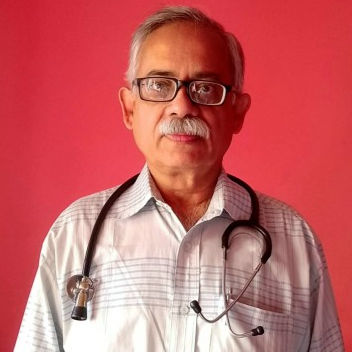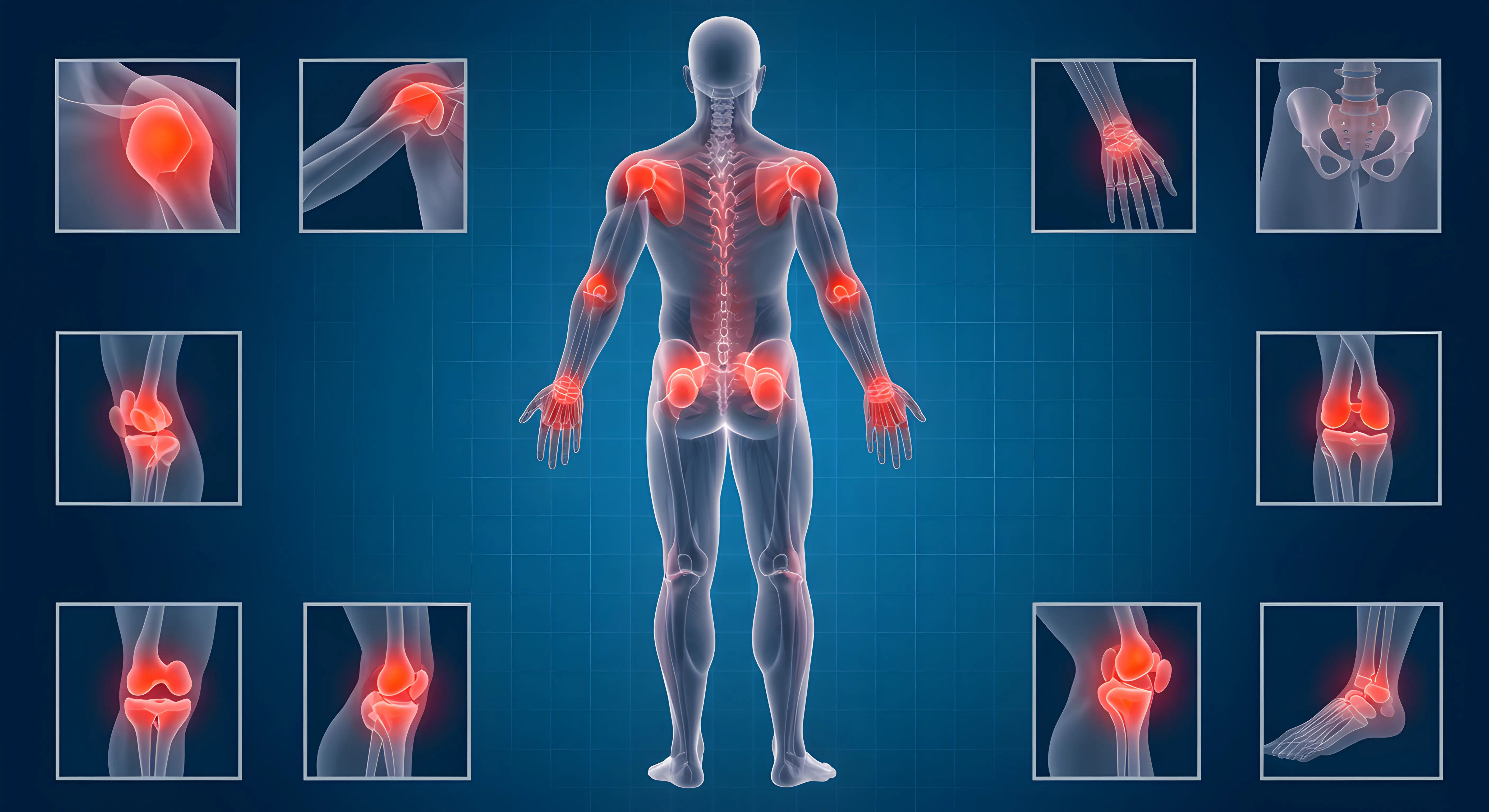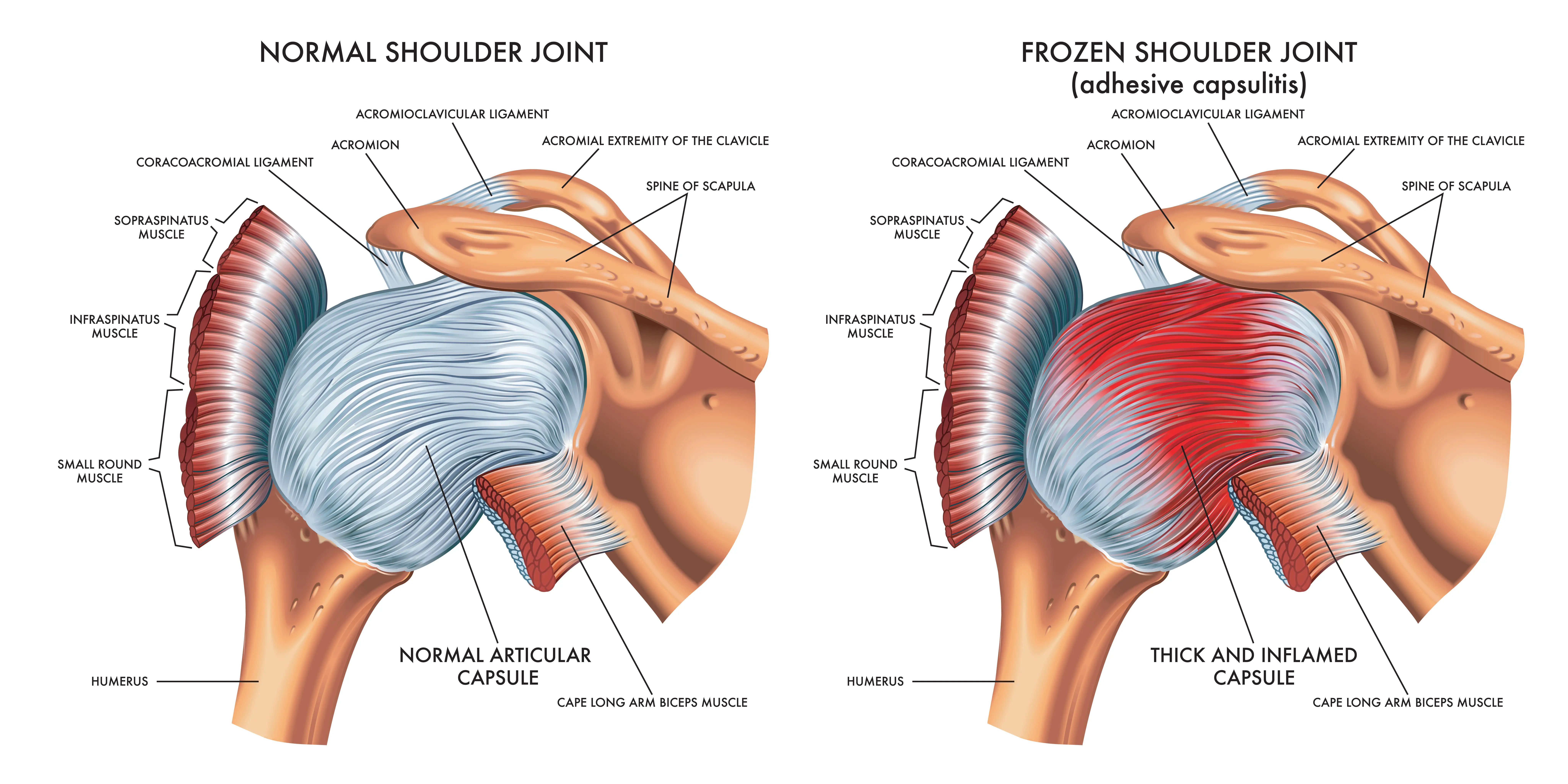How to Treat Frozen Shoulder: A Complete Guide to Regaining Motion
Learn how to treat frozen shoulder (adhesive capsulitis) with home remedies, physical therapy, and medical treatments. Understand symptoms, stages, recovery time, and effective strategies to regain shoulder mobility.

Written by Dr. M L Ezhilarasan
Reviewed by Dr. Dhankecha Mayank Dineshbhai MBBS
Last updated on 13th Jan, 2026

Introduction
That persistent, deep ache in your shoulder that makes it impossible to reach for a cup in the cabinet or slip on a jacket—it could be a frozen shoulder. Medically known as adhesive capsulitis, this condition sneakily restricts your shoulder's movement, turning simple daily tasks into frustrating challenges. If you're reading this, you're likely seeking clear, actionable advice on how to treat frozen shoulder and reclaim your mobility. You're not alone; this condition affects up to 5% of the population, particularly those between 40 and 60. This comprehensive guide will walk you through everything you need to know: from understanding the symptoms and stages to exploring highly effective home remedies, professional physical therapy options, and advanced medical treatments. Our goal is to equip you with the knowledge to actively participate in your recovery journey, reduce pain, and gradually restore your shoulder's full function.
What Exactly is Frozen Shoulder (Adhesive Capsulitis)?
Frozen shoulder is a condition characterised by stiffness, pain, and a significant loss of range of motion in the shoulder joint. The problem originates in the shoulder's capsule—a strong connective tissue that surrounds the joint. In adhesive capsulitis, this capsule thickens and becomes tight, forming stiff bands of tissue called adhesions. Often, there is also a reduction of synovial fluid, the lubricant that helps the joint move smoothly. Think of it as a rusty hinge that hasn't been oiled in years; it simply won't move without a fight. Importantly, it's crucial to distinguish a frozen shoulder from a rotator cuff tear, as the latter involves injured tendons and often requires a different treatment approach. A proper diagnosis is key.
Consult a Specialist for Personalised Advice
The Three Stages of Frozen Shoulder
The frozen shoulder recovery time is typically long, spanning anywhere from 1 to 3 years, and progresses through three distinct stages:
- Freezing Stage (Painful Stage): This initial phase involves a gradual onset of pain that worsens over time, especially at night. As the pain increases, you slowly begin to lose range of motion.
- Frozen Stage (Adhesive Stage): The pain may actually begin to diminish in this stage, but the stiffness remains or worsens. The shoulder becomes exceptionally difficult to move, and daily activities are severely impacted.
- Thawing Stage: This is the recovery phase. The range of motion in the shoulder slowly begins to return to normal. This stage can be lengthy, taking from several months to over a year.
Effective Ways to Treat Frozen Shoulder at Home
For many, the journey to treat frozen shoulder begins at home. Consistent, gentle care can significantly manage symptoms, especially during the early freezing and late thawing stages.
The Power of Heat and Cold Therapy
Knowing when to use heat or cold is a simple yet powerful tool for frozen shoulder pain relief.
- Cold Packs: Use an ice pack wrapped in a thin towel for 15-minute intervals to reduce acute inflammation and numb sharp pain, particularly after activity.
- Heat Therapy: A warm shower or a heating pad applied for 15-20 minutes can help relax tight muscles and improve blood flow to the stiff joint, making it easier to perform stretches. Use heat before exercising your shoulder.
Gentle Stretching Exercises for Each Stage
The best exercises for frozen shoulder are slow, consistent, and never forced. The goal is to gently coax the joint back to life.
- Pendulum Stretch: Lean over slightly and let your affected arm hang down. Swing the arm gently in small circles, forward/backward, and side-to-side. This uses gravity, not muscle force, to loosen the joint.
- Towel Stretch: Hold a towel behind your back with your good arm. Gently pull the towel upward with your good arm to lift the stiff arm. Hold for 15-20 seconds.
- Finger Walk: Face a wall. With your affected arm, slowly "walk" your fingers up the wall as high as you comfortably can. Slowly walk them back down.
Perform these stretches daily, but stop immediately if you experience sharp pain.
Professional Medical Treatments for Frozen Shoulder
If your frozen shoulder treatment at home isn't providing sufficient relief after a few weeks, it's time to seek professional help. If your condition does not improve after trying these methods, book a physical visit to a doctor with Apollo24|7 for a definitive diagnosis and structured treatment plan.
Physical Therapy: Your Road to Recovery
- A physical therapist is your greatest ally. They will teach you specific, targeted exercises for frozen shoulder designed to restore range of motion and strength. They may also use techniques like ultrasound or electrical stimulation to help reduce pain and inflammation before guiding you through stretches.
Medications and Injections
- Prescription-strength NSAIDs: Your doctor may prescribe stronger anti-inflammatory drugs than those available over the counter.
- Corticosteroid Injections: Injecting corticosteroids directly into the shoulder joint can provide powerful and rapid relief from inflammation and pain, particularly in the early freezing stage. This can make physical therapy much more tolerable and effective.
What to Avoid: Common Mistakes in Frozen Shoulder Recovery
- Don't Be a Hero: Pushing through sharp, intense pain during stretches can inflame the joint further. Work within a "comfortable discomfort" range.
- Avoid Complete Immobility: While rest is important, completely stopping all movement will allow the capsule to stiffen even more. Gentle, passive motion is crucial.
- Don't Ignore Sleeping Posture: Avoid sleeping on the affected side. Try sleeping on your back or the good side with a pillow supporting the painful arm.
How Long Does It Take to Recover From a Frozen Shoulder?
The frozen shoulder recovery time is notoriously slow and requires patience. The entire cycle of freezing, frozen, and thawing stages often lasts between 1 and 3 years. However, active treatment with physical therapy and injections can significantly shorten the duration and improve the outcome. Consistency with your prescribed exercises is the single biggest factor you can control.
Conclusion: Patience and Persistence are Key
Dealing with a frozen shoulder can be a frustrating and painful experience, but it is almost always a temporary one. Understanding the condition empowers you to take the right steps, from simple home remedies to seeking professional medical guidance. The cornerstone of how to treat frozen shoulder is a combination of pain management, consistent gentle stretching, and professional therapy. Remember, recovery is a gradual process. Celebrate small victories, like reaching a little higher or experiencing less pain at night. Stay committed to your exercises, listen to your body, and maintain open communication with your healthcare provider. With time and diligent effort, you can thaw that frozen joint and regain the freedom of movement you deserve.Consult a Specialist for Personalised Advice
Consult a Specialist for Personalised Advice

Dr. Rajib Ghose
General Physician/ Internal Medicine Specialist
25 Years • MBBS
East Midnapore
VIVEKANANDA SEBA SADAN, East Midnapore

Dr. Ashita Kuruvilla
General Practitioner
7 Years • MBBS
Kolkata
KVC CLINIC, Kolkata

Dr. K Vijaya Kumar
General Practitioner
5 Years • MBBS, Fellowship in Diabetes Mellitus
Mottur
PADMAVATHI CLINIC, Mottur

Dr. Sujay Jagatap
General Practitioner
5 Years • MBBS
Bangalore Rural
Ashwini Clinic., Bangalore Rural

Dr. Pinaki Mukhopadhyay
General Physician/ Internal Medicine Specialist
33 Years • MBBS
Kolkata
MCR SUPER SPECIALITY POLY CLINIC & PATHOLOGY, Kolkata
(25+ Patients)
Consult a Specialist for Personalised Advice

Dr. Rajib Ghose
General Physician/ Internal Medicine Specialist
25 Years • MBBS
East Midnapore
VIVEKANANDA SEBA SADAN, East Midnapore

Dr. Ashita Kuruvilla
General Practitioner
7 Years • MBBS
Kolkata
KVC CLINIC, Kolkata

Dr. K Vijaya Kumar
General Practitioner
5 Years • MBBS, Fellowship in Diabetes Mellitus
Mottur
PADMAVATHI CLINIC, Mottur

Dr. Sujay Jagatap
General Practitioner
5 Years • MBBS
Bangalore Rural
Ashwini Clinic., Bangalore Rural

Dr. Pinaki Mukhopadhyay
General Physician/ Internal Medicine Specialist
33 Years • MBBS
Kolkata
MCR SUPER SPECIALITY POLY CLINIC & PATHOLOGY, Kolkata
(25+ Patients)
More articles from Frozen Shoulder
Frequently Asked Questions
What is the main difference between a frozen shoulder and a rotator cuff injury?
While both cause shoulder pain, the key difference is movement. A rotator cuff tear often causes weakness and pain when moving your arm in specific ways (e.g., lifting it). A frozen shoulder primarily causes a global loss of both active (you moving it) and passive (someone else moving it) range of motion due to stiffness.
Can a frozen shoulder go away on its own without treatment?
Yes, eventually, it often does during the 'thawing' phase. However, this can take 2-3 years, and without treatment, you may not regain full range of motion. Treatment aims to shorten the recovery time and ensure a better overall outcome.
Are steroid injections for frozen shoulder safe?
When administered by a qualified medical professional, corticosteroid injections are generally very safe and highly effective for reducing inflammation and pain. They are typically used as a bridge to make physical therapy more effective. Potential side effects are usually minor, such as a temporary flare of pain or skin lightening at the injection site.
What is the fastest way to get rid of a frozen shoulder?
There is no instant 'cure,' but the most effective and fastest path to recovery involves a combination of treatments: corticosteroid injections to quickly reduce pain and inflammation, followed immediately by a consistent and guided physical therapy regimen to restore motion and strength.
Is frozen shoulder a sign of something more serious?
Often, it occurs idiopathically (for no known reason). However, because it's associated with conditions like diabetes and thyroid disease, your doctor might check for these underlying issues. It's not typically a sign of life-threatening illness, but a proper medical evaluation is important.




